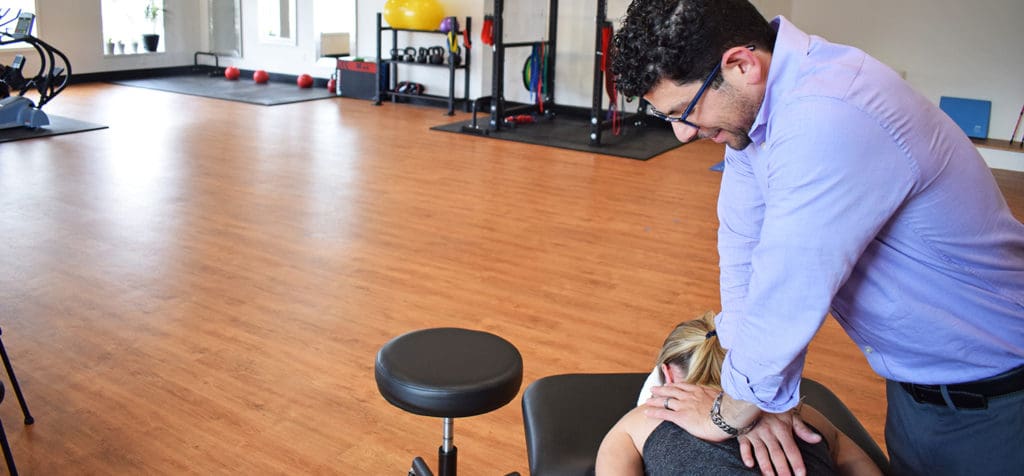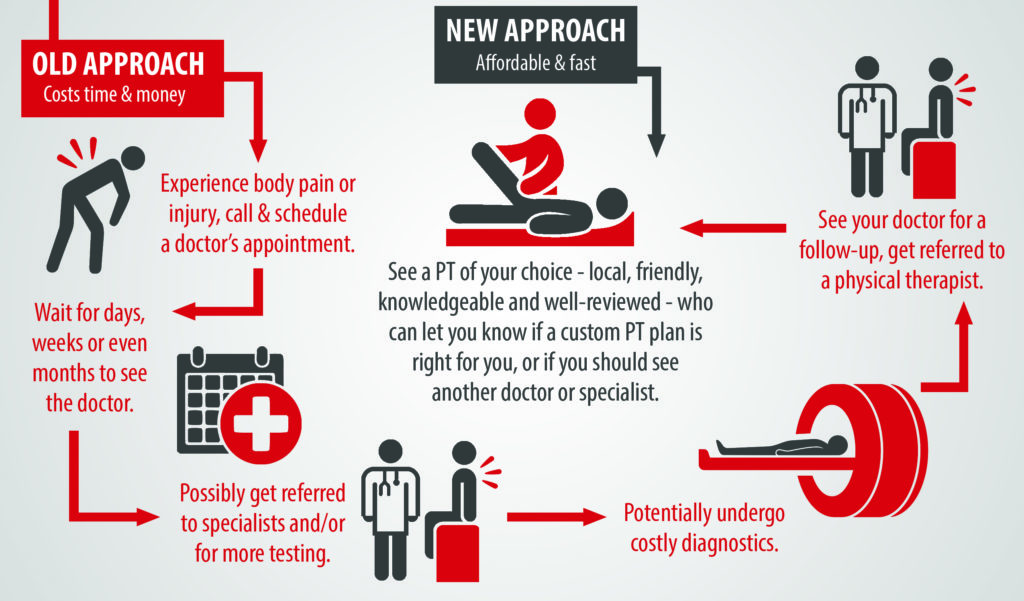5 things you might not know about Physical Therapy (but should)
1) PT treats more than you think – like, WAY more.
Contrary to popular belief, physical therapy is not just for recovering from severe injuries or operations; it can treat a wide range of painful conditions that keep you from doing what you love during the day, and from getting restful sleep at night.
Did you know that PT can address nagging aches and pain like tendinitis, back and neck problems and arthritis? Also, many physical therapists specialize in certain activities and symptoms such as golf, running, concussion management, Parkinson’s Disease, and pain during or following pregnancy. PT can even help treat vestibular (inner ear) problems that cause vertigo, dizziness and other balance issues.
If it has to do with your neuro-musculoskeletal system (muscles, bones, ligaments, cartilage, nerves and connective tissue), it’s likely a physical therapist can help!

2) PT treatment can include highly modern techniques
Hey, it’s the 21st century. We have computers in our pockets and avocado on our toast. Why do we still expect pain to be treated the old-fashioned way? While heat pads, ice packs, electrical stimulation and stretching will always have a place in physical therapy, there are a number of modern treatment techniques that can make your recovery both quicker and longer-lasting. These can include:
- Manual Therapy – This hands-on approach to physical therapy involves a skilled clinician manipulating your muscles, joints and bones with strategic movements that help to promote healing, increase range of motion and get you back to moving faster!
- Trigger Point Dry Needling™ – “Dry Needling” is a technique involving a licensed physical therapist inserting a sterile monofilament needle into an injured muscle. The word “needle” might make you run for the hills, but fear not! This needle is flexible and hair-thin – much smaller than ones used for your flu shots. During treatment, the muscles contract and release, increasing blood flow, resolving pain and stiffness, improving muscle function and flexibility, and accelerating the healing process.
- Graston Technique for soft tissue mobilization™ – The Graston Technique is a patented form of manual therapy that uses smooth stainless steel tools to perform a deeper, more effective version of soft tissue mobilization than you would receive with typical manual therapy or deep tissue massage. Trained clinicians use specially designed tools to locate and break up fibrous or scar tissue that may be causing you pain or restricting your movement.
3) In most cases, you do NOT need a doctor’s referral to see a physical therapist
Starting in 2015, all states in the U.S. were designated as “Direct Access states,” which means that, depending on your insurance, you likely do not need a prescription or script from your doctor to see a physical therapist. It’s just as well – since PTs are the experts in musculoskeletal health, you might as well go straight to the experts for musculoskeletal problems!
4) PT has been shown to be a cost-effective alternative to opioids
Studies published recently by the journal Health Services Research and researchers at Stanford and Duke’s Schools of Medicine have shown that getting physical therapy first for a broad range of musculoskeletal problems, including back, neck and joint pain, has proven to save patients time and money, and even helps curb the need for opioid prescriptions.
With PT, you can often bypass costly tests, extra doctor visits and possibly major operations. Even better, physical therapy addresses and treats the root cause of your pain, meaning it can put you on a path to moving pain free for good, instead of simply managing and masking your pain with prescription medication.
5) PT can help you prevent future pain and injury
Physical therapists not only evaluate and address current pain and mobility issues – the right physical therapist will take the time to listen and understand your day-to-day activities, exploring the various factors that can potentially cause problems in the future, and could even result in pain and injury in other areas of your body. This can include muscle imbalances, poor form and posture, improper gear, and a host of other factors. This is how PT can be used to not only “put out fires,” but as part of a healthy and active lifestyle in which you’re able to keep moving pain-free and with confidence.
PTSMC is your PT for Life
At Physical Therapy & Sports Medicine Centers, we focus on a “PT for Life” approach to physical therapy, meaning we treat the whole person, not just the injury. It also means that we aim to build relationships with patients that extend beyond the clinic walls, in which we appreciate each patient’s individual needs and can help them reach their own goals based on lifestyle and activity level. We hope you consider PTSMC for your health needs – whether they’re injury recovery, treatment for aches and pains, sports medicine, or injury prevention. We are here to be your PT for Life!

